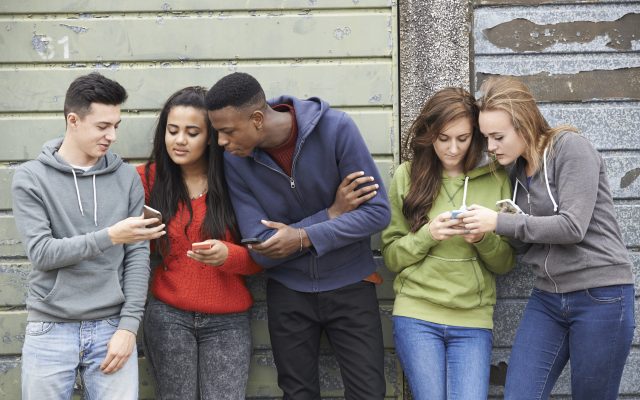Here’s How Pandemic Changed Kids’ Relationships with Social Media
January 20, 2022 11:00AM CST

Group Of Teenagers Sharing Text Message On Mobile Phones
The pandemic has been a tough time for everyone, particularly for kids.
University of Colorado researchers reviewed several studies, and say that at the beginning of the pandemic social media was an important source of connection and information-finding for children.
Researcher Dr. Jenna Glover explains, “Because [the pandemic] was so new, and it was rapidly evolving, it was a great place for people to connect, share information and frustrations, and get support.”
In addition, it wasn’t how much screen time kids got, but what they were doing while they were online that was found to be affecting their mental health. Glover clarifies, “If you are creating content […] or if you’re gaming with a friend, and talking with them while you’re doing it, you’re doing something active. That’s super helpful. If you’re passively scrolling TiKTok or passively viewing YouTube videos for three or four hours, that’s toxic for your mental health.”
She also explains that, generally, if children are sleeping, eating, doing chores and homework, and interacting with peers and family, then “the amount of screen-time is not important. It’s when those things get disrupted that screen time needs to be looked at to see if that’s what’s disrupting those activities.”
Learn more, here: (EurekAlert!)

- Researchers say at the beginning of the pandemic, social media was an important source of connection and information-finding for children, and now, it’s still important for connecting with others
- The data shows kids who spend time actively using social media (i.e. playing games with friends or creating content) are using it in a better way than those that are using it passively (i.e. mindlessly scrolling through TikTok)—and that parents should evaluate if screentime is affecting other areas of life before deciding if it’s affecting their child in a positive or negative way
More about:






